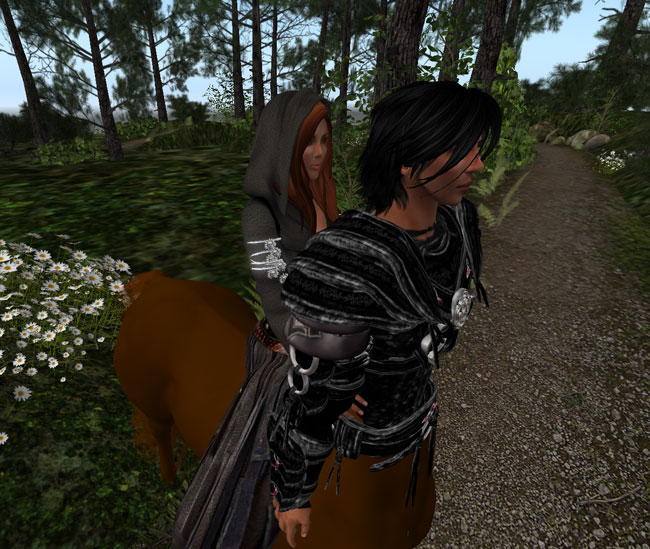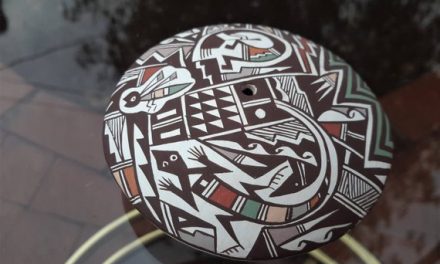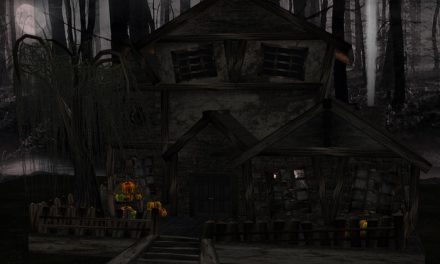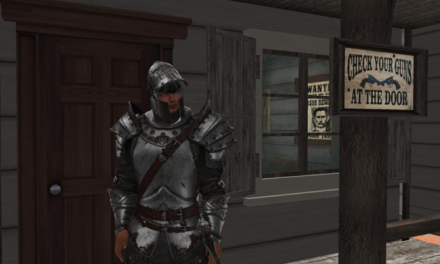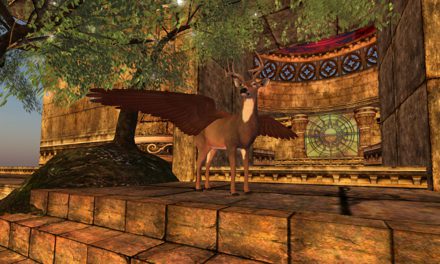 The Centaur Knows the Way
The Centaur Knows the Way
by
John H. Dromey
Not every epic adventure begins with the heroine tripping over a tangle-foot vine. Nonetheless, after having ventured barely half a furlong into environs better suited to someone with Robin Hood’s skill set than her own, a lifelong city dweller had to make some serious adjustments in her style of trekking on shanks’ mare. There were no skillfully-placed cobblestones to pave her way. Gone too were the familiar signs of the Crown and the Swan that could guide even an illiterate drunkard to his destination. For some fortunate few with well-trained saddle stock, remembering petty details like where they were domiciled was unnecessary. The horse knew the way. Not so, for this first-time rover. She was on her own.
As eventide approached, the solitary traveler wended her lonesome way along a leaf-strewn lane in an old-growth forest. The ancient trail snaked its circuitous course around any number of seemingly insurmountable obstacles, zigging first one direction and then another to avoid either titanic trees or oversized outcroppings of rock from the foot of the mountain.
Despite having multiple layers of dry organic detritus underfoot, the wayfaring pilgrim’s passage was nearly as silent as a snowflake landing on a goose-down pillow. Her long rustic cloak did not rustle in the least, nor was even a single squeak to be heard from her recently saddle soaped high-button shoes.
After rounding a sharp curve, she halted, cocked her head, and listened. A few heartbeats later, she called out, “Who is there?”
There was no reply.
She tried again. “Who lurks in yon underbrush?”
“How did you know I’m here?” a quivering voice responded.
“When you shifted your weight from one foot to the other, you reminded me of a mad bull pawing the earth.”
“Is your hearing indeed that keen, or did my bright clothing give me away?”
“It matters little how you were discovered, knave. Your attempt at concealment has failed. Show yourself, if you dare.”
“You need to keep a civil tongue in your head, m’lady. I use that term advisedly, although your attire suggests you are of humble origin and thus unworthy of the title.”
“Courtesy works both ways, sirrah. My name is Matilda. How are you called?”
“Adwr.”
“Aptly yclept, I’d venture. You strike me as a timorous fellow, skulking in the shrubbery. What is your assignment?”
“I am here on the king’s business,” Adwr said, “and I cannot leave my post in response to the whim of a passerby.”
“Stay there until you starve for aught I care. As a countermeasure to your deceit, though, I shall reveal your hiding place to the next creature that comes this way.”
As Matilda bent from the waist and used her wooden pointer to scratch an arrow-shaped design in the humus-rich soil, she heard a whispery whoosh pass over her spine, followed an instant later by the impact of a nearly weightless object embedding itself in the bark of a tree.
“Where have you gone?” the young man called out. “Are you stretched out supine on the passageway?”
“Come, see for yourself, Adwr.”
“You still have the power of speech?”
“It would seem so. Did you perhaps do something that should have robbed me of that faculty?”
Rather than answer, the watcher thrashed his torturous way through the briars and brambles until he stood on the path next to Matilda. She straightened up and looked him in the eye. “Why are you here?”
“I already told you,” Adwr said.
Matilda raised her baton slightly. “Tell me again.”
“I am the black knight’s squire and I await the arrival of the queen’s champion.”
“You need wait no longer. Her majesty’s champion is here.”
The squire first looked at the trail behind him, and then leaned to one side to look beyond where Matilda stood. He shook his head. “I see no one else here.”
“Nor do I,” Matilda said. “That’s because I am her champion. You may escort me to the field of battle if you like.”
“You intend to represent the queen in a trial by combat?”
Matilda nodded.
Adwr glanced at her hand. “You brought a stick to a swordfight?”
“It’s a wand, actually, but please don’t concern yourself with my safety. If necessary, I’m prepared to use a borrowed blade to defend myself.”
“Ha! Who would loan you a weapon?”
“If asked politely, why should anyone—be he rogue, rascal, or royalty—refuse such a request on my behalf?”
“Foremost among a myriad of reasons, methinks, for fear you might do yourself a mischief. Besides, you look far too frail to wield anything heavier than a steak knife.”
“Looks can be deceiving,” Matilda said.
“Forsooth!” Adwr took time to scrutinize his visitor anew. “Your garb is that of a sorceress, and the fairness of your face could be your witch’s glamour at work. How do I know you are not the enchantress allotted by custom and law to aid the champion?”
Matilda shrugged her shoulders. “You don’t. Would it help allay your doubts if I point out the rules do not preclude my playing a dual role? Either way, my destination is the same.”
“Be on your way then, wench.” Adwr stepped to one side. “I won’t obstruct your passage any longer.”
“I ask a boon,” Matilda said. “I wish you to accompany me on my journey.”
“Why should I grant your request?”
“Because you aspire to a chivalrous profession?”
Adwr shook his head. “I am not persuaded.”
“Consider this. If forsooth I am a sorceress, as you yourself suggested, then I have the power to manipulate organic matter and could therefore easily transform you into any docile creature of my own choosing. Do you wish to test my prowess?”
Adwr decided he did not. He started down the footpath. Matilda followed.
At the bottom of a steep incline the fellow travelers came upon a narrow brook. Five evenly-spaced gray mounds protruded from the still waters. After stepping lightly on the first two, Adwr leaped over the third and landed precariously on the penultimate perch. He teetered briefly before regaining his balance. Then he stepped onto the final stone to reach the farther shore.
The sorceress approached the water’s edge and studied the route the squire had taken. She hiked up her skirt to a modest height and then stepped to one side. Sliding first one foot forward and then the other, she glided across the surface of the brook without making a splash.
Adwr was wide-eyed with wonder. “How is it your feet are dry?”
“Broom straws,” Matilda said. “I put one in each of my shoes.”
“If you possess a flying broom, why did you not simply soar over the mountain?”
“Harpies guard the uppermost crags. There is a mountain pass that would have suited my purposes had there not been a phalanx of archers stationed there.”
“Are you insinuating the king is using extraordinary measures to prevent you from reaching your destination?”
“Perhaps a demonstration is in order,” Matilda said. “How many stepping stones are there?”
“Five.”
“But you only trusted four of them. Why was that?”
“I wished to show off my leaping skills.”
“Let me show you something,” Matilda said. She picked up a pebble and tossed it high in the air. When the tiny projectile came back down, it struck a glancing blow to the step in the middle of the stream.
The ersatz stone sank beneath the surface of the water for less than a heartbeat before reappearing as part of the arched back of a fierce sea serpent. The snake’s head and thrashing neck extended an arm’s length above the churning water as the creature sought a target for its exposed fangs which were dripping either water, or venom, or both.
Matilda’s caution had been justified. The brook was deceptively deep and the four stepping stones were actually pillars.
Without comment, Adwr turned on his heel and headed up the hill. As he advanced with a bold stride, the squire swung his arms and whistled a merry tune.
Could it be he truly doesn’t have a care in the world? the sorceress wondered. Or is his casual behavior designed to conceal some future nefarious ambuscade?
Nothing untoward happened for the next league.
Then, just short of a clearing that marked the edge of the forest, Adwr was stopped in his tracks. In the blink of an eye he was encased in greenery as clinging creepers sprang out from either side of the path to grasp his limbs and smother his upper body.
The sorceress stepped forward, tapped the plant with her wand, and murmured an incantation. The offending foliage withered and fell to the ground.
Adwr gasped for breath. “I owe you my life, m’lady,” he said.
Matilda could detect no trace of sarcasm in his voice. “You did not anticipate this vegetative entrapment?”
The squire shook his head. “The king’s mage supplied me with a poisonous blow dart and told me of the ensorcelled sea serpent in the river. She did not, however, vouchsafe to warn me of the deadly choke-vines. I’ll warrant they came from her own garden.”
“You’re a pawn then. Disposable in any number of gambits.”
“I am,” Adwr agreed. “And as such I no longer owe any allegiance to the king or the black knight. I freely offer my fealty to you.”
“Accepted with gratitude,” Matilda said.
“Now that I have only your best interests at heart, I entreat you,” the squire said. “Go back from whence you came. So long as you do not disturb the placid surface of the waterway and awaken the sleeping serpent, you will come to no harm. Going forward is ill-advised. If you continue with your foolish quest, you will fail. The contest is rigged.”
“In what way?”
“You have no horse.”
“My mount will come from the north,” Matilda said.
“Under whose care?”
“Unaccompanied. My steed knows the way.”
“Then entry will be denied. Only with a wizard at its side to cloak its identity might your steed be admitted. All animals with four hooves have been pressed into royal service, and any horses arriving from outside the kingdom are subject to quarantine until after the trial.”
“Is that the only impediment?” Matilda asked.
“There is another. You have no bladed weapon.”
“If needs must, I will rely on guile to achieve my goals.”
“I’m reluctant to encourage your folly, m’lady, but I suppose I could loan you a sword that once belonged to my Uncle Ioan. He was a pacifist so the blade is rather dull.”
“What of the point?” Matilda asked.
“Since there can be no sorcerous interventions until after the first clash of steel, the point is that by taking the field on foot you would be mortally trampled by the king’s stallion before the fight even began.”
“I meant the point of the sword. Is it intact?”
“Yes,” Adwr said. “For what little good that might do you. You should forfeit.”
“I cannot. I must persevere. My queen depends on me. She has no army of her own, and all her close allies are afeard of offending your king by intervening in a personal feud. I am her majesty’s only hope for vindication.”
***
Matilda spent the remainder of the day and the better part of a restless night in a modest stable adjoining the cottage where Adwr lived with his parents.
The sorceress temporarily eschewed the use of magic so as not to alert the king’s mage of her presence. By the light of a scented candle, Matilda attempted in vain to remove years of accumulated rust from the sword her benefactor had retrieved from its hiding place in an oats bin. At some point she noticed a thin green band entwined around the instep of the shoe on her left foot. She removed the pliable strand and wrapped it around the handle of the sword just below the hilt to add a bit of color and to hide some of the rust.
Sometime long after dark the sorceress was joined in the stable by a mastiff that was drawn to her by the scent of her candle. Her visitor growled an ambiguous greeting. Matilda blew out the candle and slept until dawn.
The sorceress awoke refreshed. It was the start of a new day, but not yet time for magic. She shared her meager breakfast with the mastiff, and then the two of them went to the venue designated for the battle of champions. They were stopped at the entrance by a steward.
“Although a sorceress may enter, she must leave her familiar outside.”
“You mistake the nature of my companion,” Matilda said. Her sword was concealed by her cloak.
“Your mascot then. Only an animal with two human feet or four hooves may enter the arena.”
“We’ll observe from here for the nonce.”
Presently, a fanfare heralded the commencement of the contest.
As the last note faded, the sorceress touched the mastiff with the tip of her wand and transformed him into his natural shape. She handed the sword to the human portion of the centaur and then positioned herself on the creature’s equine back. The two unlikely warriors entered the stadium.
Across the way, the black knight drew his sword and spurred his horse into a full gallop.
The centaur advanced at a trot. He gripped the unfamiliar sword with both hands and held it as far in front of him as he could in a defensive posture. He was poised to block or parry with the weapon, not to thrust. It appeared that Matilda was just along for the ride.
The distance between the opposing champions quickly closed. As Adwr had predicted the battle was almost over before it began.
With one mighty swing of his broad sword, the black knight easily knocked the smaller-by-comparison sword out of the centaur’s hands. The rusty blade soared high into the air—far beyond his reach.
Not every epic adventure ends well because the protagonist had the foresight to attach a length of tangle-foot vine to the handle of her borrowed sword.
Matilda swept up her arm and swirled her wand in a perfect arc. In response, her sword circled behind the black knight and burrowed into an opening in his armor at the base of his neck just deep enough to prick the skin.
“Blood has been drawn,” Matilda said. “Do you yield?”
The black knight threw down his sword and said, “I do.”
The queen’s champion had won the day.
END
John H. Dromey was born in northeast Missouri. He’s had short fiction published in Alfred Hitchcock’s Mystery Magazine, Outposts of Beyond, Stupefying Stories Showcase, and elsewhere.
